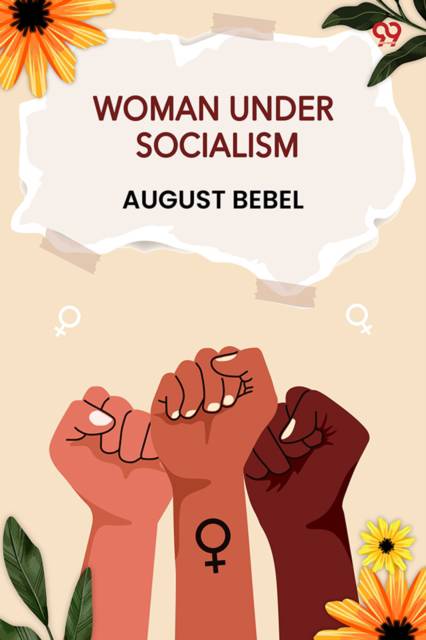
Bedankt voor het vertrouwen het afgelopen jaar! Om jou te bedanken bieden we GRATIS verzending (in België) aan op alles gedurende de hele maand januari.
- Afhalen na 1 uur in een winkel met voorraad
- In januari gratis thuislevering in België
- Ruim aanbod met 7 miljoen producten
Bedankt voor het vertrouwen het afgelopen jaar! Om jou te bedanken bieden we GRATIS verzending (in België) aan op alles gedurende de hele maand januari.
- Afhalen na 1 uur in een winkel met voorraad
- In januari gratis thuislevering in België
- Ruim aanbod met 7 miljoen producten
Zoeken
Omschrijving
Woman under socialism presents a scientific and political investigation into the systemic oppression of women within capitalist society and argues that true gender equality can only be achieved through a complete transformation of social relations. Written in the late 19th century, the work draws on historical, economic, and sociological evidence to frame women's subordination not as a biological inevitability but as a consequence of historical developments tied to property and class. The author begins by identifying the so-called woman question as a pressing issue inseparable from the broader struggle of the proletariat. He refutes the idea that women s inferior status is rooted in nature, instead tracing its origins to the rise of patriarchy and private property. Early chapters explore the evolution of social roles from egalitarian and communal arrangements to male-dominated family and legal systems. He asserts that women's emancipation cannot be achieved through isolated reform but must be pursued alongside the working class s fight against economic exploitation. By tying women s liberation to the success of socialism, the text positions itself as both a call to action and a detailed guide for societal reorganization. It remains a foundational argument for the intersection of class and gender emancipation.
Specificaties
Betrokkenen
- Auteur(s):
- Uitgeverij:
Inhoud
- Aantal bladzijden:
- 406
- Taal:
- Engels
Eigenschappen
- Productcode (EAN):
- 9789371139588
- Verschijningsdatum:
- 1/05/2025
- Uitvoering:
- Paperback
- Formaat:
- Trade paperback (VS)
- Afmetingen:
- 140 mm x 216 mm
- Gewicht:
- 467 g

Alleen bij Standaard Boekhandel
+ 69 punten op je klantenkaart van Standaard Boekhandel
Beoordelingen
We publiceren alleen reviews die voldoen aan de voorwaarden voor reviews. Bekijk onze voorwaarden voor reviews.









